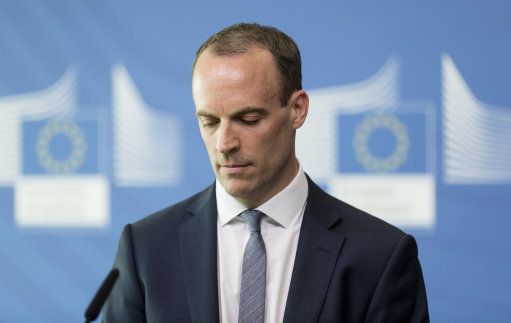
Imagine a scenario where it was not Britain leaving the European Union but one of the other member states, whilst Britain was remaining. It is worth considering because it helps us to understand how—in the real scenario of Brexit—the EU27 are reacting. In particular, it helps us to understand why that reaction should not be described as punishment.
In the hypothetical case, Britain’s reaction would depend partly upon which country we imagine was leaving. Suppose it was Ireland. Then, Britain would see as its key strategic interest the need to preserve the Northern Ireland peace process and to uphold the Good Friday Agreement. Central to that would be ensuring as a non-negotiable position that, whatever form Ireland’s departure took, it would not create a hard border on the island. Britain would, undoubtedly, put maximum pressure upon the EU to hardwire this into Ireland’s Withdrawal Agreement—as a backstop, let’s call it. It is difficult to imagine many British politicians arguing otherwise.
Whichever country was leaving, it is a reasonable assumption that a central British requirement would be to preserve the integrity of the single market. After all, Britain, starting with Margaret Thatcher’s government, has been its strongest proponent. It was Thatcher whose 1988 Bruges speech, despite inspiring a generation of Eurosceptics, talked enthusiastically of opening up the single market and berated other members for not doing so to a sufficient extent. And much of the basic architecture of the single market was devised by the Conservative minister, subsequently European Commissioner, Lord Cockfield.
Successive British governments have done the same thing, championing the extension of the single market into new areas, especially services. One of the main reasons why the French voted against a European constitution in their 2005 referendum was that they saw it as expressing a “Blairite” neo-liberal Europe in which the economics of the single market rather than “social Europe” predominated. And as recently as the 2015 election manifesto—the one that promised a referendum—the Conservative Party proclaimed “we say: yes to the single market” and spoke of extending it further into new sectors like digital.
So it seems certain that in the hypothetical scenario Britain would be arguing strongly that the departing member could not “have its cake and eat it”: it would have to either be in the single market, accepting all of its rules, or out of the single market and no longer enjoying its benefits. Britain would surely be saying that the available options were for the ex-member to have a European Free Trade Association-type single market arrangement, or a Canada-style free trade deal, but not a mix and match. If the exiting country would not agree to that, then it would have to leave without a deal and accept the consequences of that choice.
Moreover, it seems certain that those most strongly of this view would be British Eurosceptics—the people we now call Brexiters—who would see any cherry-picking as taking advantage of Britain by giving the ex-member unfair access to its markets without paying budget contributions or accepting the rules. They would, surely, lambast the EU if it showed any sign of wavering on this. To do so, they would say, would show the EU at its very worst, doing shady, unprincipled deals rather than applying the rules properly and fairly. In short, Britain—and Eurosceptics especially—would be the staunchest advocate of precisely the position being taken by the EU towards Brexit.
Exactly the same could be said of all the other areas of contention in Brexit. For example, would Britain argue for the departing member to pay its outstanding financial commitments? Or to be let off? Or to only have to pay in exchange for a cherry-picked trade deal? The answers are obvious, as is the fact that Britain would be furious were the EU to take a different line.
Or, again, would Britain be saying that the former member could be part of agencies like the Galileo satellite programme? Or saying that to allow this would be to piggy-back on British efforts, and that the departing country should be like any other third country? Would Britain be seeking to directly safeguard the rights of its citizens living in the departing country? Or be happy to leave them to their fate, without regard to what the future might hold for them?
Again, all of these questions answer themselves. It is quite obvious what Britain’s position would be on all of these issues, quite obvious what it would be urging on the other EU countries, and quite obvious that were the EU as a whole to take a different line Britain—Eurosceptics especially—would be extremely unhappy.
If all of that is accepted, then a final question arises: would Britain’s stance in these various respects be a reasonable one, or would it be punitive?












